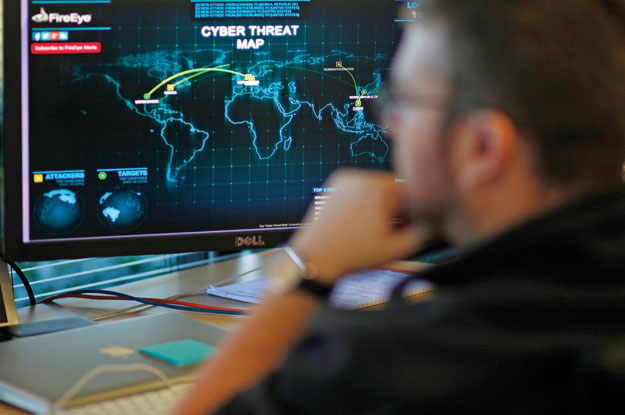In the new issue of Americas Quarterly, we asked people, “What would you tell the next U.S. president about Latin America?” To see other authors’ responses, click here.
Dear Mister / Madam President,
Across the globe, the Internet and digital communications have revolutionized the way society, government and businesses connect, interact and transact. This transformation has stimulated economic growth and social development, spurred innovation and improved transparency. This is especially true in Latin America and the Caribbean, where over half the population is online and the rate of growth in Internet use is among the highest in the world.
However, the same technology that enables entities to communicate, collaborate, trade and conduct business in real time also creates the risk of malicious actors gaining access to information. Motivations range from monetary gain to intellectual property theft, and even data destruction. As you are well aware, this is a real and serious risk to your government — as it is to our company.
As we have seen over the past few years, the attention devoted to cybersecurity has increased, partly due to well-publicized breaches of customer and government data. With cybercrime costs estimated to reach $2.1 trillion globally by 2019, four times the estimated cost of breaches in 2015, it is critical for all of us to support efforts to produce a more secure, stable and productive cyber domain.
What does this mean for the emerging markets in Latin America and the Caribbean? According to a 2016 report released by the Organization of American States (OAS) and the Inter-American Development Bank (IDB), the cost of cybercrime in Latin America and the Caribbean is estimated to be close to $90 billion a year. Yet 80 percent of countries in the region do not have cybersecurity strategies or critical infrastructure plans. Sixty-six percent do not have the resources or expertise, such as cybersecurity command centers or government personnel dedicated to fighting cybercrimes. The vast majority of prosecutors lack the legal capacity to pursue cyber criminals.
Combating cybercrime and strengthening cyber resilience are imperative to economic and social development and should be considered critical cornerstones of domestic and foreign policy. Cybercrimes do not recognize national borders and the response cannot either.
This is why we believe the U.S. has a real opportunity to lead in the hemisphere; promoting an open, secure, and reliable Internet should be a top priority of your regional agenda. Many governments in the region are working hard to develop or enhance their national cybersecurity frameworks and policies, and the U.S. is strongly positioned to help provide legal, policy and technical support to complement their efforts. This is the starting point for creating a more robust framework for international cooperation and common standards.
Equally important, strengthening cyber resilience is a shared responsibility, and is most effective with a strong partnership between public and private stakeholders. We urge you to promote new models of public-private collaboration in our region to drive increased sharing of cyberthreat information among private firms, as well as coordination and improved information sharing by government authorities and law enforcement, within and across borders.
We applaud the U.S. government’s recent steps to establish “digital attachés” in select U.S. embassies around the globe, including Brazil, and urge you to continue to partner and collaborate with other governments, the private sector, and regional organizations like the OAS and the IDB, which are working closely on regional cyber resilience, to find new ways to address this growing risk. We at Citi have dedicated significant resources to secure and protect our network, systems and data. Operating in over 100 countries and with more than 60 percent of our interactions with customers now online, the ability to move, process, store, analyze and protect data is essential to serve our clients, detect and prevent fraud, combat cybercrime, fight money laundering, and stop terrorism financing.
We encourage you to deepen U.S. cyber policy engagement in the region, and promote the need for balanced privacy regimes, crossborder data flows, and the information-sharing mechanisms that are so critical to preventing, detecting and responding to cyber threats.
In short, cyber insecurity harms economic growth. We all need to demonstrate a commitment to securing cyberspace and delivering on the promise of development and innovation that connectivity offers.
—
Fraser is the CEO of Citigroup Latin America, responsible for all businesses in the 23 countries where Citi is present in this important region, including Mexico. Fraser has an MBA from Harvard Business School and a master’s in economics from Cambridge University.




